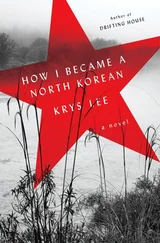THE RADIO HELPED ME to live. The repetition that didn’t always happen gave me a measure of life: a surprise gift for me to unwrap, mad with joy, as the flow of sound made up its mind whether to be the same or different … This calmed my overactive memory … I felt I was no longer beginning to live, with the furious cruelty of beginnings, but simply going on with my life …
I don’t know if this is something that my readers have noticed, but time is always double: one kind of time always conveys another, as its supplement. The time of the radio’s live repetitions conveyed the time that was passing. The palanquin carried the elephant. And time really was passing, slowly and majestically. The catastrophe turned out to be a mere possibility, and was left behind. This gave me the impression that there would be no more catastrophes in my life: I would have a life, like everyone else, and look down on catastrophes from the superior vantage point afforded by the consciousness of time … and this was what seemed to be happening. At school the teacher went on ignoring me, which was just as well. Mom didn’t take me back to the prison. I was in good health. I didn’t mind the simplicity of my life. A certain peace had come over me. I was discovering that time, long-term time made of days, weeks and months, and not of horrific moments as before, was operating in my favor. Nothing else was, but that didn’t worry me. Time was enough. I clung on to time, and consequently to learning, the only human activity that makes time our ally.
And that is how, for once in my life, I ended up doing something typical of a girl my age: identifying with the teacher. All girls go through a phase of busily giving lessons to their dolls or the imaginary children who inhabit them. How absurd for someone who knows nothing to throw herself so eagerly into teaching. But what a sublime absurdity. What catechisms of feral pedagogy await the perspicacious observer. What lessons in the primacy of action.
As I had no dolls, I had to make do with make-believe children. And as I didn’t have any already made up, I used real ones, reimagining them as I pleased. They were my classmates, the only children I knew, and they were ideal for my purposes, because I had no idea of their lives outside school. For me they were absolute schoolchildren. To make the game more fun, I gave them twisted, difficult, baroque personalities. Each one suffered from a different and complicated kind of dyslexia. Being the perfect teacher, I dealt with them individually, attentive to their particular needs, setting tasks adapted to their capacities.
For example … In order to explain this game, I have to fall back on examples. This means switching levels, because until now I have managed to avoid the pernicious logic of examples. I’m making a brief exception here solely in the interests of clarity. For example, then, one child’s peculiar dyslexia consisted of putting all the vowels together at the beginning of a word, followed by the consonants. He would write the word “consonants” as “ooacnsnnts”. That was a relatively simple case. Others got the shapes of the letters wrong, writing them back to front … The first example is purely imaginary, no living being has ever been dyslexic in that way; the second is more realistic, but only because it happens to coincide, by pure chance, with a real possibility. I didn’t know what dyslexia was; I didn’t suffer from it myself, nor did any of my classmates. I had reinvented it all on my own, to make the game more fun. I didn’t even suspect that such a disorder might really exist, and would have been surprised to learn that it did.
There were forty-two of us in the class (forty-three including me, but the teacher never included me in the roll-call or acknowledged my presence in any way); so my imaginary class consisted of forty-two children. Forty-two individual cases. Forty-two novels. The idea of leaving even one of them out to lighten the burden would have been inconceivable to me. And the burden was colossal. Because for each kind of dyslexia I had also come up with a unique and appropriate family background and etiology, couched in the somewhat deranged terms at my disposal, but displaying remarkable intuition on the part of a six-year old. For example, in the case of the boy who wrote letters back to front, his dad was a woman and his mom was a man. This affected his performance at school, either because he had to help his mom prepare the meals (being a man, his mom didn’t know how to cook), leaving no time for homework, or because the family lived in wretched poverty (his dad, being a woman, couldn’t get a proper job). I had to make sure that the cooperative provided the family with stationery, pens, pencils, etc. And every one of the other forty-one cases was just as involved. It was hellishly complicated. No real teacher would have taken on a task of such magnitude.
The situation was aggravated by the inflexible pedagogical principles I had imposed on myself: the complication could never be simplified, it could only progress. Although my system of teaching was labyrinthine (because of the number of students), it was a one-way labyrinth, with valves all facing in the same direction. The idea wasn’t to correct each student’s dyslexia, not at all. I wanted to teach them to read and write on their own terms, each according to his particular hieroglyphic system: only within that system was progress possible. For example, the boy who wrote back to front might begin by writing the word mother that way and go on to write a thousand-page back-to-front book, a dictionary, anything. I hadn’t invented disorders so much as systems of difficulty. They weren’t destined to be cured but developed. I’m using the word “dyslexia” here only because the condition is familiar and happens to bear a purely formal resemblance to my systems.
I would read out a dictation passage (in my head, of course, in imagination) then I would collect the (also imaginary) exercise books, and with that absolute honesty only to be observed among children at play, I conscientiously examined forty-two hieroglyphic texts, correcting each according to its unique and nontransferable rule.
As if that wasn’t enough, for each kind of dyslexia I also had to determine as best I could how it would affect the student’s performance in subjects other than Spanish: Mathematics, Physical Education, Drawing, and so on. To use the simplest example again (others were far more complex), the boy who wrote back to front not only counted using numbers written backwards, but also reversed the functions, so that two plus two made zero, and two minus two made four; the Argentinean nationalists demanded a closed meeting of the council in May 1810, Columbus discovered Europe, the fruit came before the flower; as for his drawings, I had to imagine them.
I had to imagine everything, because I gave my classes without props or materials of any kind, not even a piece of paper to take notes on (in any case, at that early stage in my stumbling education I wrote so slowly that there was no way I could have taken notes on the fly, like a stenographer, and I had to keep moving quickly in order to make any progress with so many students). I did it sitting still, concentrating hard, with my eyes open, and some idle part of my mind listening to the radio. My house of cards was always on the point of collapsing; the slightest distraction and I could lose the thread irretrievably. A diagram would have been my salvation. I came to long for a diagram. Had I been able to play aloud it wouldn’t have been so hard, but I didn’t, because secrecy was essential to the game’s aesthetic. So Mom never knew that I was giving lessons. What can she have thought, seeing me sitting there frozen stiff, still as a statue …
Читать дальше












